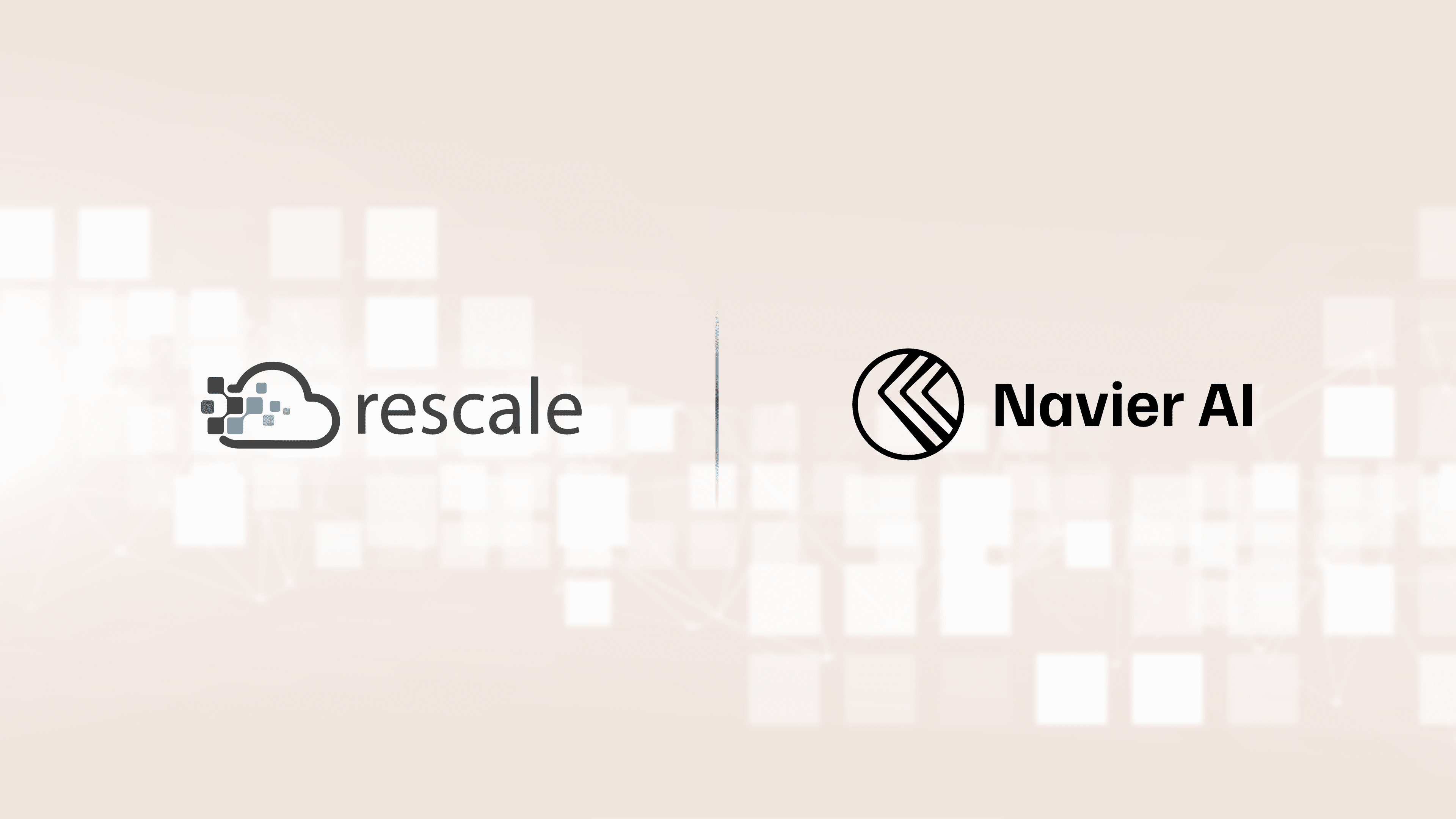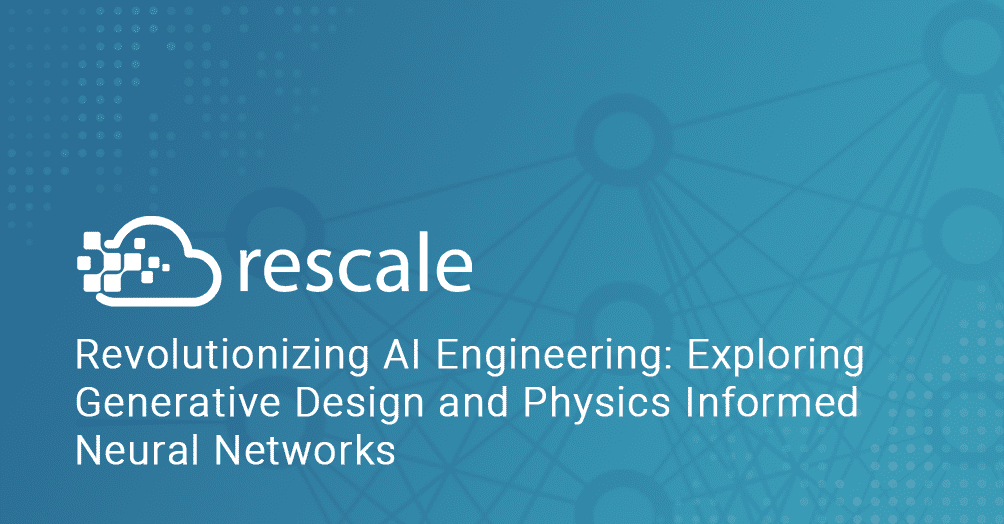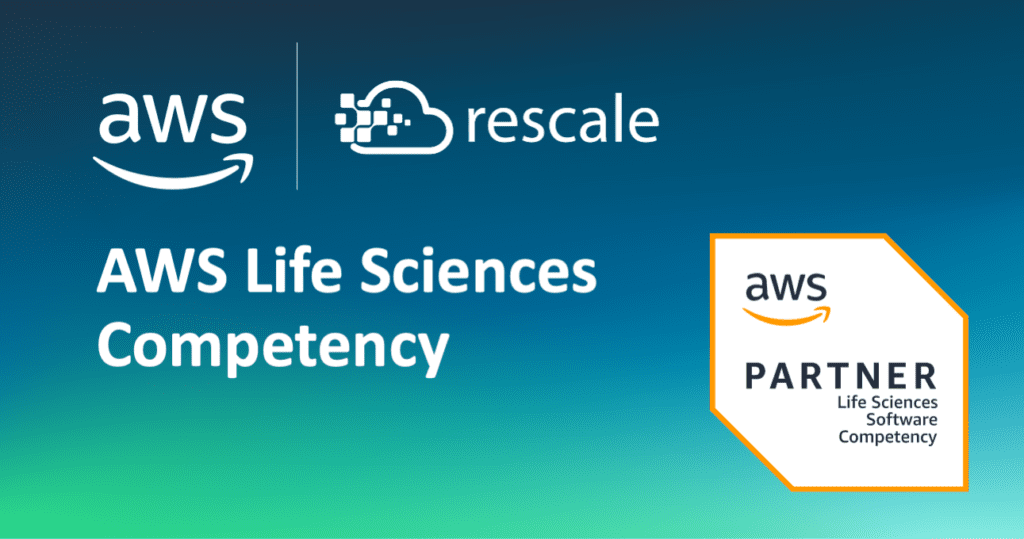Rescale and Navier AI Partner to Accelerate Computational Engineering with AI Physics
Combining AI with cloud HPC enables unprecedented opportunities for R&D innovation in the aerospace, automotive, and energy industries.
Rescale, the leader in high-performance computing (HPC) built for the cloud, is excited to partner with artificial intelligence innovator Navier AI to bring to market AI physics models on the Rescale platform for accelerated computational fluid dynamics (CFD) applications. The partnership marks a significant milestone in advancing the automation of turnkey AI physics simulation solutions for rapid and low-cost computational engineering of fluid structures. Customers interested in AI-accelerated CFD are encouraged to sign up for a joint early access program below.
In today’s fast-paced engineering landscape, engineering professionals continually grapple with the challenge of optimizing productivity while navigating the constraints of time and resources. Modern engineering increasingly leverages fast and reliable simulations to accelerate design iteration cycles.
Engineers often encounter challenges with the significant time and expense of large-scale physics solver-based simulations. As Moore’s Law slows, relying solely on hardware upgrades for increased computational power becomes less effective in driving simulation performance gains.
Enter Navier AI, a groundbreaking solution poised to revolutionize engineering workflows by harnessing the power of AI to streamline simulations and drive efficiency. Navier AI’s models enable engineers to perform simulations, explore design spaces, and iterate 1,000 times faster than traditional physics solvers. The models learn from massive quantities of high-quality simulation data. They are also constrained by the laws of physics, which enables them to return reliable CFD simulation results at a fraction of the time and cost of physics solvers.

“Navier AI is part of a new wave of technology that is bringing AI to Engineering professionals,” said Matt McKee, Chief Operating Officer at Rescale. “We’re excited to integrate Navier AI and their advanced pre-trained models into the Rescale platform, enhancing capabilities for our customers to conduct AI-assisted engineering. This collaboration exemplifies our commitment to empowering engineers with cutting-edge tools for transformative innovation.”
With the Rescale platform, customers can quickly deploy and tune Navier AI’s pre-trained models and start simulating 1,000 times faster without needing to train models from scratch. Navier AI’s models can be fine-tuned with data from CFD simulations run with physics solvers on Rescale in a multi-cloud environment that seamlessly unifies AI and R&D workflows for increased accuracy with analyses of complex flows.Once customers select optimal designs from the predicted CFD simulations, they can validate the results directly on Rescale with the physics solvers of their choice from Rescale’s library of 1,000+ pre-installed, optimized applications. The applications are ready to deploy multi-cloud Coretypes on Amazon Web Services (AWS), Microsoft Azure, Google Cloud Platform, Oracle Cloud Infrastructure, and specialty cloud providers like CoreWeave.

Beyond integrating Navier AI with the Rescale platform, the two companies are working together on joint go-to-market initiatives to accelerate customer adoption of AI-driven computational engineering. The joint efforts highlight a step-change in AI and cloud R&D platform ecosystem collaboration, enabling engineers to design highly optimized products at unprecedented speeds. “We’re excited to partner with Rescale to integrate, scale, and go to market with our physics-ML models on their enterprise cloud R&D platform, ” said Cameron Flannery, CEO of Navier AI. “The Rescale team has deep expertise in automating HPC applications, workflows, and data management on their platform, and we look forward to working with them to turbocharge engineering discovery and design optimization.”
Aerospace Design Optimization
Aerodynamic optimization is crucial for the aerospace sector, with Computational Fluid Dynamics (CFD) playing an instrumental role in design and analysis. Leveraging Navier AI’s physics-ML models, aerospace engineers can swiftly navigate through expansive design landscapes, enabling the evaluation of a broader array of designs. Consequently, this facilitates crafting more optimized designs within reduced timeframes, marking a substantial leap in engineering efficiency and effectiveness.
Automotive Industry for Vehicle Design
The electric vehicle (EV) sector is rapidly evolving, with CFD and drag reduction playing increasingly essential roles in improving range and reducing battery pack size requirements. Navier AI’s physics-ML models empower automotive engineers to significantly reduce drag through meticulous design refinement, thereby extending vehicle range. Earlier in the process, designers can leverage accelerated CFD insights using Navier AI’s intuitive UX, allowing for drag minimization without compromising form. Fast CFD enables the integration of aesthetic considerations with performance metrics, setting a new standard in automotive design where elegance meets efficacy.
Renewable Energy Systems
In the realm of renewable energy, Navier AI’s physics-ML models for fast CFD simulations can be used to optimize and analyze wind farms. Turbine placement, to maximize captured energy, can be optimized using Navier AI’s rapid predictions of the complex interactions between turbines and their environment. This allows engineers to achieve optimal operational efficiency and boost the output of renewable energy sources. Advanced predictive capability can help accelerate the renewable energy sector’s development of the energy sources needed to combat climate change.
The use cases above are just the beginning of how Navier AI and Rescale are partnering to enable the next generation of R&D. The application of AI for CFD is in the early days. It has the potential to radically transform how engineers and scientists unlock innovation possibilities in aerospace, automotive, civil engineering, drug discovery, electronics, maritime engineering, medical devices, and weather research and forecasting.
Get Started with Navier AI on Rescale
Navier AI and Rescale are engaging with early customers to power innovation with AI-accelerated CFD workflows in their engineering design processes. Sign up here to join the early access program and get started with Navier AI on Rescale today.
Also, visit Rescale at NVIDIA GTC 24 booth 1824 in the MLOps Pavilion from March 18-21 to learn more about harnessing the AI Physics ecosystem with full-stack cloud AI and R&D automation.








